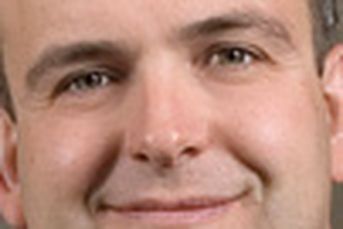Finra execs pocketed millions in ’08, while SRO was in the red
Thirteen current and former executives of the Financial Industry Regulatory Authority Inc. made more than $1 million apiece in 2008, a year in which the regulatory organization lost $694 million, according to tax forms Finra filed last month.
Thirteen current and former executives of the Financial Industry Regulatory Authority Inc. made more than $1 million apiece in 2008, a year in which the regulatory organization lost $696.3 million, according to tax forms Finra filed last month, as well as the company’s annual report.
The compensation, which includes salary, bonuses and retirement plan awards, pales next to the payouts that some Wall Street executives and bankers made in boom years — but still raised eyebrows given Finra’s investor protection charter and its $479 million in investment losses last year.
The highest-paid executive was Michael D. Jones, the group’s former chief administrative officer, who left in the summer of 2008 after more than a decade at Finra with compensation, severance and accumulated benefits valued at $4.43 million. Mr. Jones subsequently joined the Public Broadcasting System as its chief operating officer.
Several of Finra’s 2008 millionaires have gone on to lower-paying government positions. SEC Chairman Mary Schapiro, who received $3.3 million last year as Finra’s chief executive officer, is paid $162,900 to run the government agency. Earlier this year, she received another $7.2 million from Finra as part of her accumulated retirement-plan benefits.
Elisse Walter, who was appointed a commissioner of the SEC in July 2008, received $3.8 million from Finra last year (including $2.4 million of supplemental retirement benefits) for running its regulatory policy and programs. Internal Revenue Service Commissioner Douglas Shulman pocketed $2.7 million in salary, bonus and retirement benefits for his eight years of service at Finra, which ended when he joined the IRS in March 2008.
Four current Finra executives — including enforcement chief Susan Merrill and Grace Vogel, executive vice president for member regulation — made more than $1 million last year, and four others made more than $800,000.
Richard Ketchum, who became chief executive of Finra in March, earned $122,500 last year in his role as the group’s board chairman, according to the tax form. Finra spokeswoman Nancy Condon declined to comment on Mr. Ketchum’s 2009 compensation.
Mr. Ketchum was formerly president of the New York Stock Exchange’s regulatory unit, which merged with the National Association of Securities Dealers in late 2007 to form Finra. He was not among the top five NYSE Euronext executives whose pay was disclosed in regulatory filings last year and in 2007. In 2006, he received $2.1 million in total compensation as president of NYSE Regulation Inc.
Ms. Schapiro’s compensation last year included $20,000 annually for club memberships in New York and Washington, $20,000 for personal financial and tax counseling, and a car and driver for use in both cities, according to the tax form. Finra also generally pays a “gross-up” adjustment to cover its executives’ costs, the filing said.
Overall, compensation and benefit expenses for Finra’s 2,800 employees jumped 21.4% in 2008 to $541.7 million from the previous year. The increase was driven primarily by severance and other benefit costs of $30.3 million related to a voluntary retirement savings program and increased retiree medical and savings plan expenses, the company said in its annual report.
Finra said compensation costs also rose because of the addition of 470 employees on the full-year 2008 payroll who joined from the group’s merger with NYSE Regulation.
As a private, non-profit firm, Finra does not file annual proxy documents disclosing executive salaries. Each of its operating units, however, discloses compensation in its annual Form 990 Internal Revenue Service filings for tax-exempt organizations.
Finra’s operating loss last year was dominated by a $568 million decline in its investment portfolio, a 26.5% drop that erased almost all of the company’s positive gains from the previous four years. After Mr. Ketchum arrived, Finra radically repositioned its investment portfolio from hedge funds and other alternative investments into more conservative investments.
“Like many organizations, Finra was affected by the credit crisis and the economic downturn in two ways,” Mr. Ketchum wrote in the company’s annual report. “First, revenues used to fund operations from expected investment returns (less than 10%) did not materialize. Second, Finra’s investments were not immune from the unprecedented decline.”
Finra’s management compensation committee approves all pay for employees whose compensation exceeds $1 million, according to the tax forms. That committee includes four board members from outside the securities industry. The committee hired Mercer Inc., a compensation consultant, to help determine the fairness of its 2008 executive pay, according to the forms.
For the full story, see the Dec. 7 issue of InvestmentNews.
Learn more about reprints and licensing for this article.




